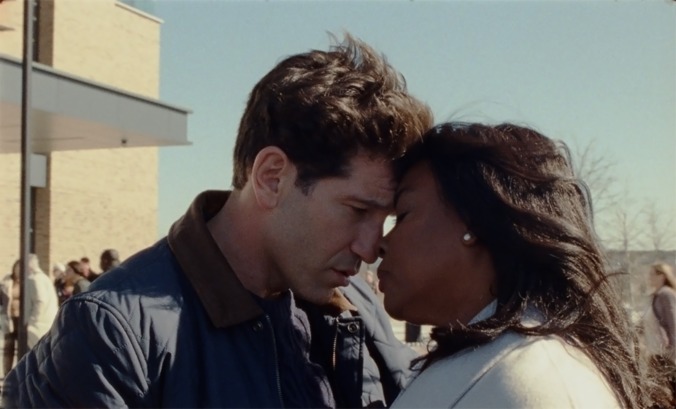Origin Review: Ava DuVernay’s ambitious study of grief and growth
Aunjanue Ellis-Taylor gives voice to author Isabel Wilkerson’s true life tribulations and triumphs in this emotionally powerful work

There’s a scene nearly halfway through Origin where the protagonist is advised by her confidant to simplify her new book’s sharp-but-unwieldy premise or risk losing potential readers. It reads like similar feedback given to writer-director Ava DuVernay in her development of this riveting feature, which gives voice to Isabel Wilkerson’s personal and professional struggles while writing her compelling novel Caste: The Origins of Our Discontents. Achieving a breakthrough for the character and audience members alike, the astute filmmaker drills into the dramatic core and lets the film’s magnitude push the picture’s heartrending sentiments to the fore.
Isabel Wilkerson (Aunjanue Ellis-Taylor) is on top of the world when we first meet her, coming off of a successful book tour. She’s won acclaim and respect worldwide as an author and Pulitzer Prize-winning journalist. She has a lovely home in the suburbs. She also has her supportive husband Brett (Jon Bernthal) and caring best friend/cousin Marion (Niecy Nash-Betts). However, her world starts slipping out of her control. As her conscience grapples with transferring her elderly mother into an assisted living facility, she’s dealt an unimaginable blow when Brett suddenly dies. And, while she’s in deep mourning, her mother also perishes due to degrading health.
Grief-stricken, anguished and needing money to survive, Isabel begins percolating on her next book idea. She ruminates on the concept of racism and what that terminology means in our modern era by connecting horrible happenings in current events, kicking off with Trayvon Martin’s attack and murder and crystalizing it further with Heather Heyer’s. She theorizes it’s not racism at the root of these problems, but rather the caste system we’ve inherited. While her editor (Vera Farmiga) doesn’t grasp Isabel’s initial, overly broad pitch, the writer’s journey has already commenced, leading Isabel on a path to world-shattering discoveries dealing with Nazi Germany, the 1930s American South and contemporary Indian society.
Showcasing her visual dexterity, DuVernay admirably experiments with different styles, ranging from straightforward delivery (which has a soft, rich profundity all its own thanks to Matthew J. Lloyd’s supple cinematography) to the more esoterically poetic (visualizing her heroine’s sorrow as Isabel lying on a bed of fallen leaves in a black void). Tucked away in the hushed silence of Marion’s arc, we see diabetes—yet another crisis affecting the Black community —taking hold.








![HBO teases new Euphoria, Larry David, and much more in 2026 sizzle reel [Updated]](https://img.pastemagazine.com/wp-content/avuploads/2025/12/12100344/MixCollage-12-Dec-2025-09-56-AM-9137.jpg)































